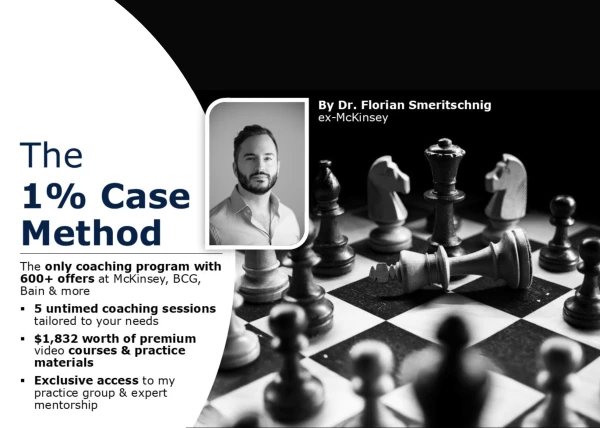Hi guys. Currently I'm practicing for case interview. I have learned about the frameworks and how to structure the case solution. However, I prefer to know more about business and businesses are being run, to be able to solve any case and be able to structure any framework. I'd like to know the core concepts about running the business, not just the cases.
Any suggestions?














